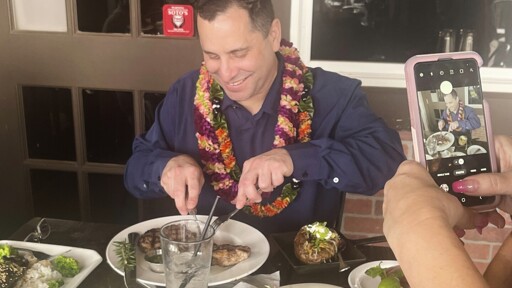There were gasps and cries in the courtroom when Judge Kirstin Hamman said, “And the judgement and sentence is vacated and the defendant is ordered to be released from custody,” before a Zoom feed broadcasting the hearing suddenly turned off.
She ruled that new evidence, including DNA test results, would likely change the outcome of another trial against Gordon Cordeiro.
Maui County Prosecuting Attorney Andrew Martin said he was disappointed in the ruling and “None of the judge’s findings exonerate him in any way.”
His office intends to appeal and file a motion seeking to impose bail on Cordeiro’s release, Martin added, saying there is a flight risk because a murder charge is involved.
For an incredibly long time, the purpose of the police was to offer the appearance of stability and consequences. They rarely “got their man” and instead opted to simply scapegoat a random undesirable in order to perpetuate the lie, if they did anything tangible at all.
My question is, when do you think they finally managed to at least break even? What year did the number of cases actually solved equal or exceed the number of cases bungled, weaponized, or ignored?
What makes you think it ever did?
Objectively, there are more safeguards and methods for investigation now than 100 years ago. Dooming over a broken but repairable system is rarely constructive.
Pretending that it’s less broken than it is isn’t more constructive.
You’re telling me that you legitimately believe that over 50% of crimes worth investigating are attributed to the wrong person or ignored? The issues plaguing the system are more varied and nuanced than every other death row inmate being unjustly imprisoned. What you’re saying legitimately sounds like nonsense.
Then show your proof they’re wrong.
They made a claim, you doof. I have no proof of the antithesis of their claim.
So they may not be wrong then.
As a Canadian I can’t understand how prosecutors continue to bang their guilty drums when DNA evidence exonerates someone. And it happens almost every time.
Like do they just prefer lies over truth?
Honest answer: the legal theory is that if each side doesn’t argue their case as well as they can, justice can’t be complete. That’s why there are things like mistrials when the defense attorneys do a poor job, and appeals only work to the extent that certain things were brought up furing the original trial.
In practice it’s deeply flawed.
Honestly, I live in a timeline where we have openly corrupt Supreme Court justices like Clarence Thomas in our life. It is my opinion they will choose their own personal enrichment over the actual fairness of a situation. Dropping a case admits you were wrong and these folks don’t want to be seen as making any mistake in judgement, it hurts their careers and personal enrichment.
I highly doubt that it was the same judge and prosecutor after 30 years, so the present day judiciary personnel involved having personal stakes in the case seems unlikely. But I don’t disagree that certain bloodthirsty prosecutors and/or judges likely hate admitting the system is deeply flawed when it comes to convicting innocents they’ve already deemed criminals.
Your prosecutors are elected too I believe. Which means if they can “look hard on crime” for the next election cycle it can give them a better chance at winning.
In Canada we don’t have half the elections you do. Neither police chiefs, prosecutors or judges are elected … here they are appointed, which imo is a better system.
There’s pros and cons to both systems. With so many positions being elected, it is supposed to make it more difficult for unilateral, systemic corruption to take root. In theory, anyway. But, hardly anyone pays attention to local politics and local journalism is virtually dead in all but larger metro areas nowadays. As such, propaganda is much easier to spread and corruption goes unnoticed in all but the most egregious scenarios in many smaller areas.
In my system it is extremely rare for a judge to found scamming the system. They’re also very wary of having a ruling vacated because they didn’t follow our Charter of Rights and Freedoms.
Being appointed also negates them being bought off through donations to an election campaign. And most (if not all) Canadian judges set aside their personal politics to rule as unbiased as possible. The very few who don’t often end up censured … and that doesn’t bode well for their judicial futures.



